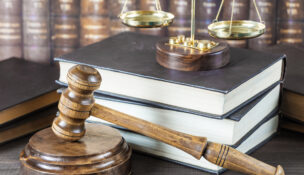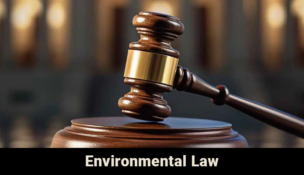Virginia Supreme Court hears $2B trade secrets case
McLean tech company Appian seeks reinstatement of record jury award
Kate Andrews //October 28, 2025//

AdobeStock photo

AdobeStock photo
Virginia Supreme Court hears $2B trade secrets case
McLean tech company Appian seeks reinstatement of record jury award
Kate Andrews //October 28, 2025//
Summary:
- In 2022, Appian was awarded $2.04 billion in a Fairfax County jury verdict
- The jury found that rival Pegasystems used Appian’s trade secrets in its software
- An appeals court panel reversed the verdict in 2024 and ordered a new trial
- Appian seeks to have the appeals verdict overturned by the state Supreme Court
McLean-based software company Appian presented arguments Tuesday before the Supreme Court of Virginia that it should receive a record-breaking $2.04 billion jury award decided in 2022 — a jackpot overturned by three appeals court justices last year.
In 2022, Appian won what was estimated to be the largest jury award in Virginia state court history after it sued Massachusetts-based Pegasystems and an individual, Youyong Zou, in 2020, alleging that Zou, an employee of a government contractor using Appian software, illegally provided Pega with copies of Appian’s software and documentation. Pega disputed that claim, stating that anything viewed was available to the public.
However, in July 2024, a panel of three Virginia Court of Appeals judges reversed the verdict and ordered a new trial, saying that Appian was improperly relieved of the burden of proving that Pega financially benefited from misappropriating Appian’s trade secrets.
In March, the state’s high court agreed to hear a petition from Appian to reinstate the 2022 judgment. Arguments took place in Richmond Tuesday.
In its petition to the Supreme Court of Virginia, Appian raised four errors it believes the Court of Appeals made, and the petition was granted on each of the four issues.
The Virginia Supreme Court also agreed to hear Pega’s cross-appeal issues, which asks the court to review whether the trial court and court of appeals made an error by finding that there was sufficient evidence that Appian “took reasonable efforts to maintain the secrecy of its alleged trade secrets when Appian disclosed that information to others who were under no obligation to keep it secret in holding” and whether Appian failed to sufficiently identify some of its trade secrets.
The 2024 appeals court opinion authored by Judge Frank K. Friedman rejected Pega’s claim that “Appian failed to establish misappropriation of any trade secret as a matter of law. However, we agree with Pega that the trial court erred in granting [a jury instruction], which relieved Appian of its proper burden to prove causation between the alleged misappropriation and any damages.”
Appian’s attorney, Robert W. Loftin of McGuireWoods, said during Tuesday’s arguments that the original Fairfax County Circuit Court judge who oversaw the 2022 jury trial “lived with this case for 16 months, he knew the parties. … There was no abuse of discretion in the manner in which Judge [Richard] Gardiner conducted the trial.”
Loftin argued that the Virginia Court of Appeals panel “failed to acknowledge or even cite” the standard that a jury verdict “approved by a circuit court occupies the most favored position known to the law.”
He also said that Gardiner was within his authority to rule against Pega’s attempt to introduce new testimony during the trial that would contradict how much profit it had gained from its misappropriation of Appian’s trade secrets in pretrial discovery.
According to Loftin, the jury heard that Pega incorporated Appian’s trade secrets into its entire platform, leaving all $3 billion in profits tainted, according to pretrial deposition testimony by Pega’s chief financial officer.
However, Pega attorney E. Joshua Rosencranz of Orrick, Herrington & Sutcliffe argued Tuesday that Judge Gardiner shifted the burden of proof to Pega with regard to how much of its profits were due to the misappropriation of Appian’s trade secrets, instead of Appian’s proving how much it deserved, and then refused to let the defendant give more precise testimony during trial.
“This was a terribly unfair and disastrous … one-two punch,” Rosencranz argued. “The court basically took away Pega’s only defense on damages, which is that half of our products don’t even incorporate the trade secrets.”
Asking Rosencranz about the source of that allegation, Justice Wesley G. Russell Jr. said, “It surprises me a bit … that you can break [the profits] down” by product.
Rosencranz responded by saying that this information was in the attorneys’ expert report, breaking down profits by product instead of by platform.
The pretrial questioning of Pega’s CFO, the attorney said, involved seeking a breakdown of profits by platform — leading to the deposition testimony that both versions of Pega’s platforms incorporated Appian’s trade secrets, without specifying that not all products supported by Pega’s platforms were tainted.
Rosencranz argued Tuesday that if Gardiner had allowed Pega’s CEO to testify, he would have affirmed that half of the company’s profits are untainted by the misappropriation of trade secrets from Appian.
“Judge Gardiner was wrong,” Rosencranz said. “You don’t hold companies to their [pretrial] interrogatories, except in extraordinary circumstances where there’s sandbagging. There was no sandbagging here. We had an expert report that actually broke things down by product.”
The Supreme Court will take the arguments under advisement and issue a verdict, likely in coming months.


















